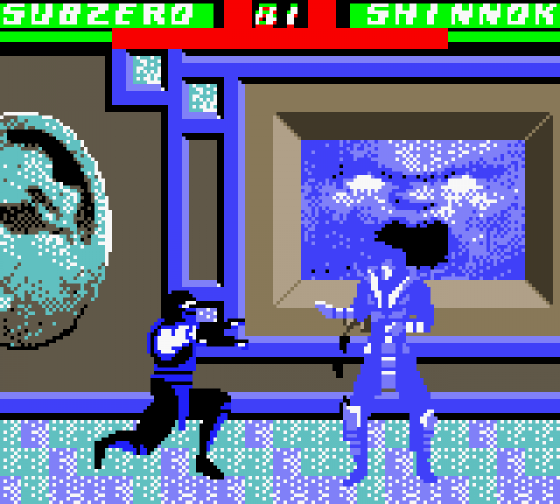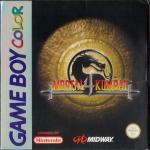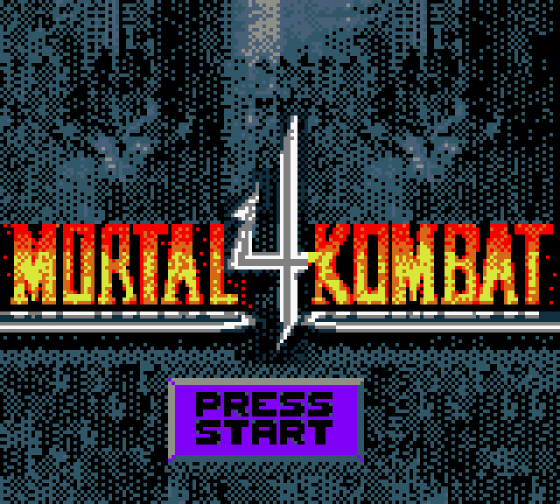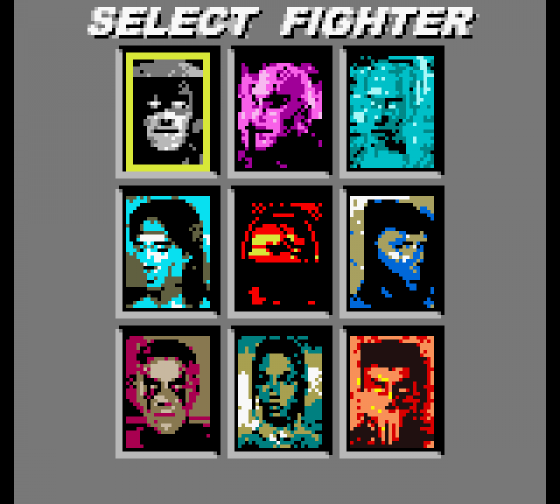
Total Game Boy
 28th November 1999
28th November 1999
Categories: Review: Software
Publisher: Midway
Machine: Game Boy Color
Published in Total Game Boy Issue 02
Blood 'n guts all over the small screen!
Mortal Kombat 4
Mortal Kombat was a sure-fire hit when it first appeared in the arcades, with its distinctive characters and over-the-top gore. Subsequent conversions of the game for the home entertainment market did equally well, as did the resultant arcade sequels, each more outlandish and blood-soaked than the last.
For each Mortal Kombat coin-op the formula changed very little. More characters were simply added and different and more bloody moves kept the die-hard fans happy, despite the fact that they were basically paying for more of the same. By the time Mortal Kombat 4 hit the arcades, the number of characters was huge and the guts level vomit-inducingly high.
Fans of the Mortal Kombat series will already be familiar with the game structure. After selecting your combatant you are taken to the level select screen where you must choose from one of three routes: easy, medium or hard. Each route is represented by a tower of blocks and the number of blocks increases as the difficulty level rises.

Each block in a tower represents a character, and as you face and defeat them you slowly move up the tower from block to block until you come face to face with the Elder God, Shinnok.
During the battle your health is represented by a meter at the top of the screen. Reduce your opponent's meter to zero before they do the same to you and you win the round. The first person to win two rounds wins the fight and - assuming that you triumph - you then proceed to the next level of the tower.
In addition to the health meter, each character also has a run meter. This is a feature unique to the Game Boy version and it controls whether or not your character can sprint or not. Quite why this has been added (in previous games, running was just another move) isn't clear. To be honest, it doesn't add anything to the gameplay and can cause frustration because the characters move incredibly slowly at the best of times.

True to Mortal Kombat tradition, when an opponent has been successfully overcome, they begin to sway on their feet and the message 'Finish Them' appears. At this point you have the opportunity to pull off a fatality move, which basically involves disposing of them in some particularly gory way!
One advantage that the Game Boy version has here is that the fatality moves are all very simple to accomplish, so the less nimble-fingered mangle fans out there will stand a chance of accomplishing them. However, the fatality graphics themselves are somewhat disappointing, with a small window opening in the centre of the screen and just a few frames of monochrome animation depicting the rather confused result!
Strangely for the number of characters in Mortal Kombat 4 for the Game Boy is limited to just eight (rather than including all the characters from the coin-op version). This wouldn't be so bad if the game played as well as all the other versions. However, Mortal Kombat 4 for the Game Boy Color is, frankly, dull.

Rather than go with fairly small, but fast-moving characters, Midway has instead opted for large ones that move slowly and with only a few frames of animation. Being big, you'd expect them at least to be colourful, but each combatant consists of only three colours - black, white and one other.
The massive array of moves that Mortal Kombat has always been famous for is also gone, with each character getting only three special moves (which includes the fatality) in addition to the standard punch, kick and block. Anyone for watching paint dry?
While you could argue that the lack of characters, colours and moves is a result of memory restrictions, it simply doesn't make up for the lack of atmosphere. Even the music which was so appropriate in other versions of the game is a disappointment, sounding like something more suited to a cutesy platformer than a gory battle that ends in certain death.
When you compare the gameplay in this to other Game Boy Color beat-'em-ups, like Sunsoft's Power Quest, there's just no contest. Mortal Kombat fans who were hoping for something special from this title are only going to be disappointed. There's really no reason to buy it, unless you're a totally obsessed fan who feels they have to own absolutely every Mortal Kombat game on every format.
Beat-'em-ups can be done on the Game Boy, but this one just doesn't cut it.









